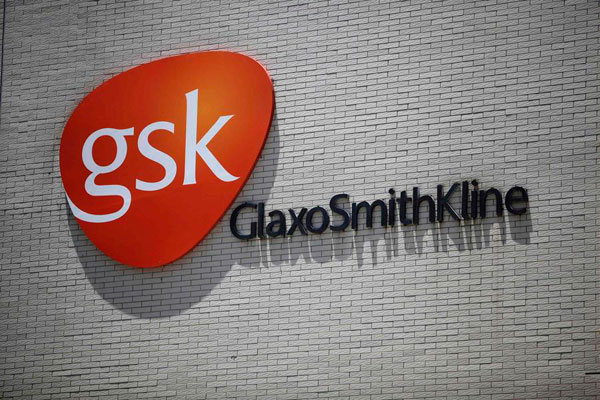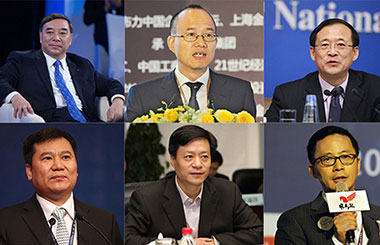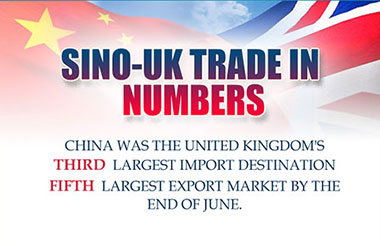GSK puts China corruption case behind it, forms new business model
By Cecily Liu (chinadaily.com.cn) Updated: 2015-10-22 20:17
 |
|
The logo of GlaxoSmithKline (GSK) is seen on its office building in Shanghai in this July 12, 2013 file photo.[Photo/Agencies] |
GlaxoSmithKline emerged from its corruption scandal in China in 2013 to form a new business model in the country and is committed to further expansion there, chief executive officer Andrew Witty told China Daily in London on Wednesday in an exclusive interview.
"We think it's a very sad and disappointing experience, but we've reacted constructively and learnt many things. And now we understand China better, we have a new commercial model and incentive system, which is in step with the expectations of the Chinese government," Witty said.
In 2013, GSK was found by the Chinese authorities to be bribing doctors to prescribe its drugs to patients, and after a court trial the company was made to pay a $489 million fine in 2014.
Witty said that GSK has since developed a commercial model with improved technology and transparency.
The transparency of the model allows GSK to monitor its sales staff to make sure no bribe is paid to doctors, and the continuously improving technology allows doctors to obtain much more information about GSK drugs to aid their decision making process when prescribing medicine.
"We've made it clear to the doctors in China about our changes and have spent a great deal of time to explain to them the reasons for us making the changes. We have received a lot of understanding and appreciation from doctors about our approach," Witty said.
As well, GSK has invested in continuously improving technology to reduce the cost of the medicine, Witty said.
Speaking about China's healthcare market environment, Witty said that China is a country that it takes time to understand, just like any other country, and understanding China encompasses its economic policies, economic direction and regulation.
He said that "GSK is lucky to be a guest of China" and will fulfill its responsibility to deliver the medicine that are up to expectations.
GSK also announced on Wednesday that it will invest 2 million pounds in a 3 year partnership with the National Health and Family Planning Commission of China to train seven thousand Chinese doctors in the diagnosis and treatment of Hepatitis B.
Witty said that this investment reaffirms GSK's long term commitment to serving China and the healthcare needs of patients in the country.
Hepatitis B is a high priority in China, with about 20 million sufferers across the country remaining untreated.
"We think it is important that we're doing the training in partnership with the Chinese government, so that we can make sure what we have invested in will help to address issues that are of real importance to China," said Witty.
He said that the Hepatitis B investment is similar to GSK's investment into training Chinese doctors in the treatment of respiratory conditions and chronic obstructive pulmonary disease, announced last month, which are also healthcare priority areas identified by the government.
The Hepatitis B program, to be run over three years, and delivered by the Development Center for Medical Science and Technology, National Health and Family planning Commission of China, will help doctors understand how to diagnose, treat and provide ongoing management to patients with Hepatitis B.
Witty said that China will remain important to GSK over the long term, in particular because it has a large population, meaning that from a commercial perspective the sales potential is great, and from a research perspective it can provide a valuable environment to develop medicine that GSK can use globally.
GSK was ranked as the world's sixth-largest pharmaceutical company in 2014, with revenue of 23 billion pounds.
GSK has already committed 6 million pounds for public health initiatives in China over the next five years, with around 4 million being spent on independent GP training, the company said in a statement.
To contact the reporter: cecily.liu@mail.chinadailyuk.com
- JD Smart to build smart eco-system
- AIIB to be run with highest standards of '21st century governance'
- China, Britain strengthen cooperation to push yuan's global use
- International Seminar on Jointly Addressing Challenges to Humanitarian Aid held in Beijing
- China to set up third-generation nuclear power company
- Silk Road Fund to revitalize China's mining industry
- Wage pressures remain despite slowdown, say HR bosses
- Rolls-Royce signs $2.4 billion engine agreement with HNA Group














